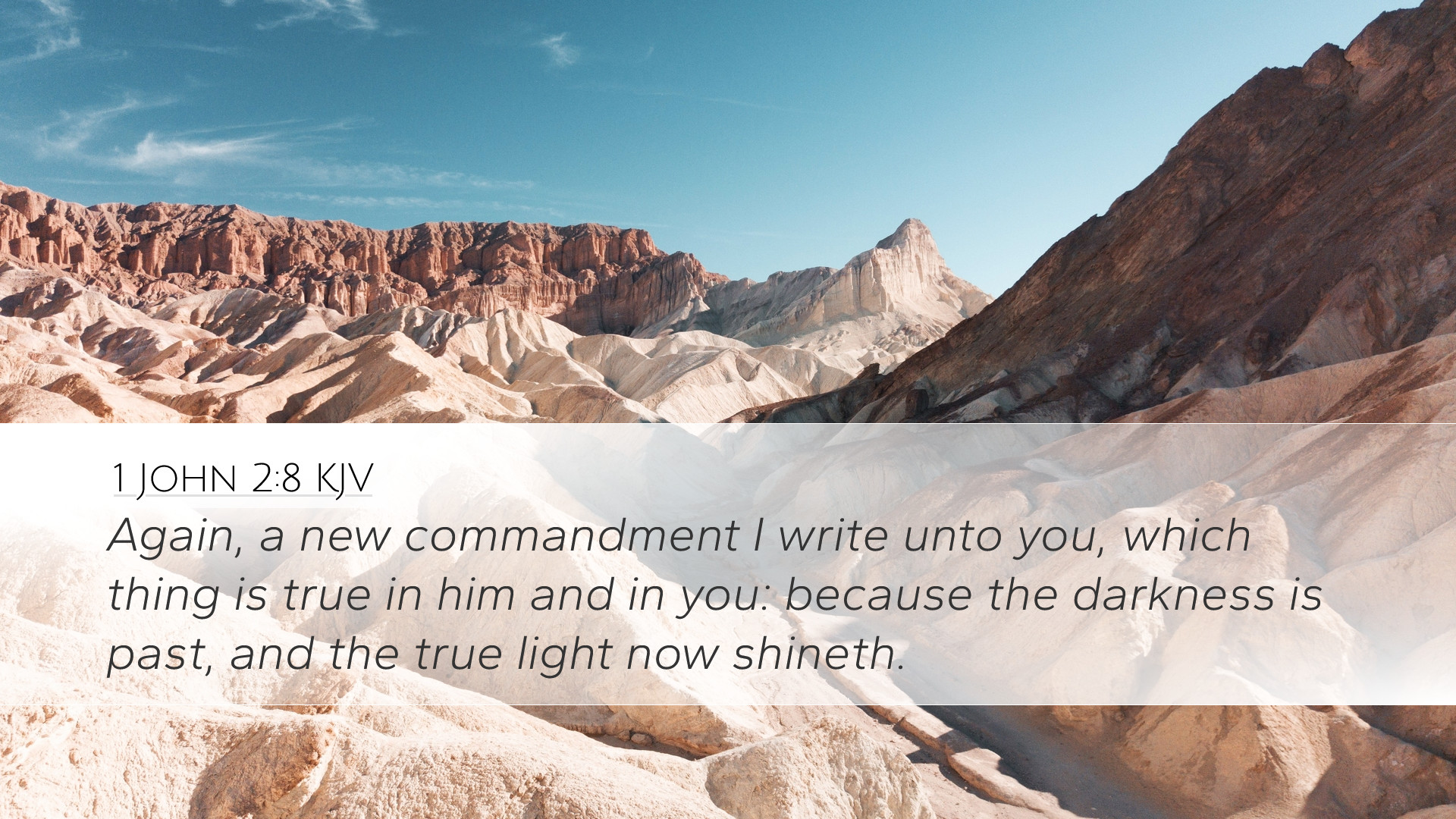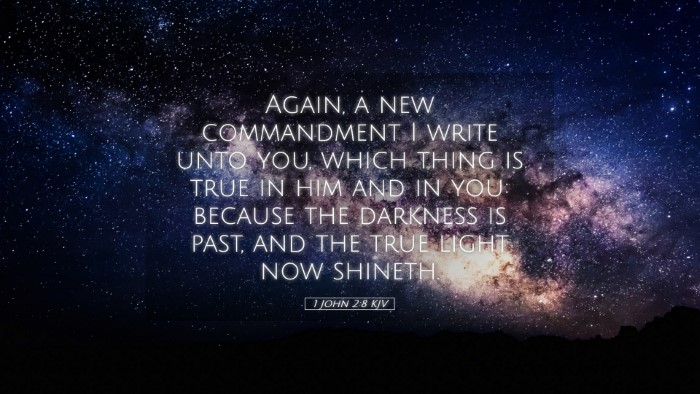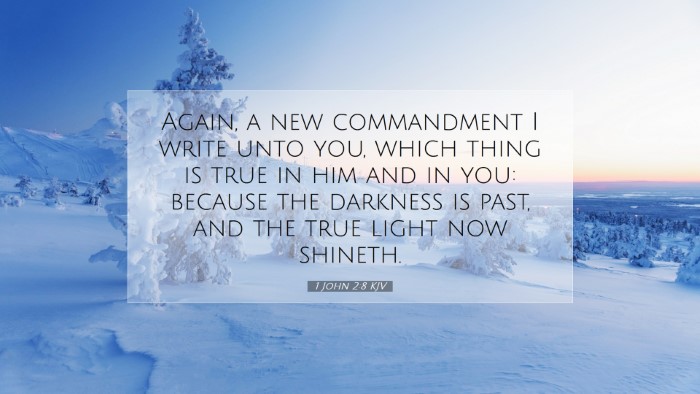1 John 2:8 - Commentary Synthesis
Verse Text: "Yet I am writing you a new commandment, which is true in him and in you, because the darkness is passing away and the true light is already shining."
Introduction
This verse from 1 John encapsulates profound theological themes concerning light, darkness, and the transformative power of Christ's presence in the believer's life. Drawing insights from commentaries by Matthew Henry, Albert Barnes, and Adam Clarke, this synthesis aims to elucidate the rich meaning embedded in this scripture, providing valuable understanding for pastors, students, theologians, and Bible scholars.
The Duality of Light and Darkness
Light as a Metaphor: The Apostle John frequently employs the imagery of light to signify purity, truth, and divine revelation. In this context, the “true light” represents Christ himself, who illuminates the way for believers through His teachings and sacrificial love. Henry notes that this light is not only external but also internal, influencing the lives of believers.
Darkness as Temptation: Conversely, darkness signifies ignorance, sin, and separation from God. Barnes emphasizes that the darkness is "passing away," suggesting a temporal state for sin and spiritual ignorance. As believers engage with the truth of Christ, there is a progressive movement away from the shadows of evil towards the illuminating light of righteousness.
A New Commandment
This verse asserts that John writes a "new commandment" to his readers. Clarke explains that this refers to the commandment to love one another, which while not entirely new, is renewed in the context of Christ’s love and example. The term "new" signifies the freshness of Christ's teaching and the radical transformation necessary in the hearts of believers.
- Renewal of Commandment: The essence of the commandment is revitalized through Christ’s example, making it imperative for believers to embody His love.
- Practical Outworking: Henry reflects on how this commandment manifests practically in community settings, urging believers to live in love, reflecting the true light within them.
The Nature of Truth
John asserts the truth of this commandment "in him and in you," suggesting a dual application. According to Barnes, the truth is inherent in Christ and also finds expression in the lives of believers. This indicates that genuine Christian living flows from one’s relationship with Christ, where the internal transformation becomes visible externally.
The Eschatological Perspective
With the phrase “the darkness is passing away,” there is an eschatological implication. Henry highlights that this reflects the progressive revelation of God’s plan culminating in the final victory over sin and death through Christ. The presence of light signifies hope and the assurance that God’s redemptive work is in motion, encouraging believers to hold fast to the truth amidst the challenges of a fallen world.
Application for Believers
For contemporary believers, the implications of 1 John 2:8 are profound:
- Living in the Light: Believers are called to reflect the light of Christ in their lives, engaging in actions that promote love, truth, and righteousness.
- Embodying the Commandment: The call to love is not merely an emotional sentiment but a tangible expression that should characterize Christian relationships.
- Hope in Darkness: In times of moral and spiritual darkness, the assurance that the light of Christ is shining provides profound encouragement and strength for believers to persevere.
Conclusion
1 John 2:8 enriches our understanding of Christian identity as those called from darkness into the marvelous light of Christ. By synthesizing the insights from esteemed commentators, believers are reminded of the transformative power of the Gospel and the call to live out the new commandment in loving relationships. As pastors, students, theologians, and scholars ponder this verse, they are invited to explore how the dual realities of light and darkness continue to shape the Christian experience today.


